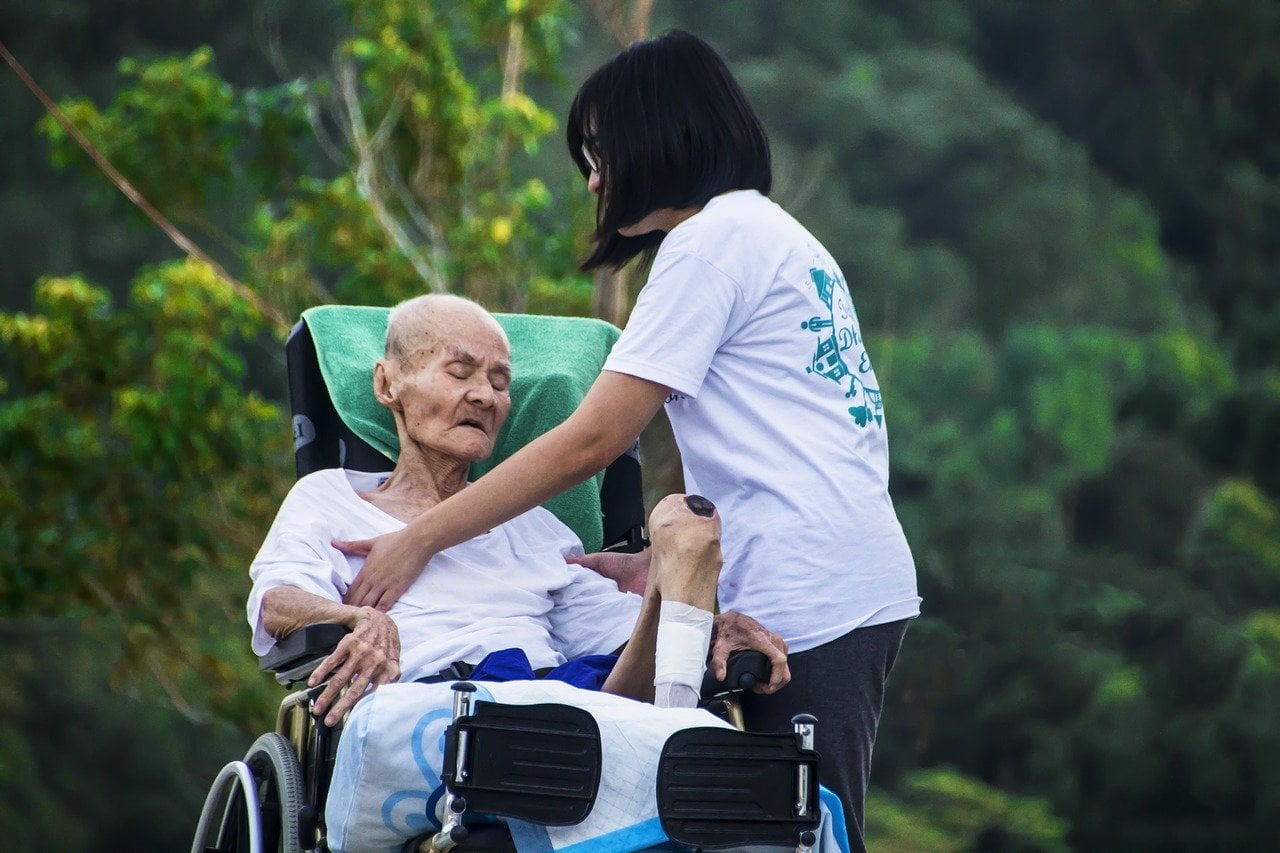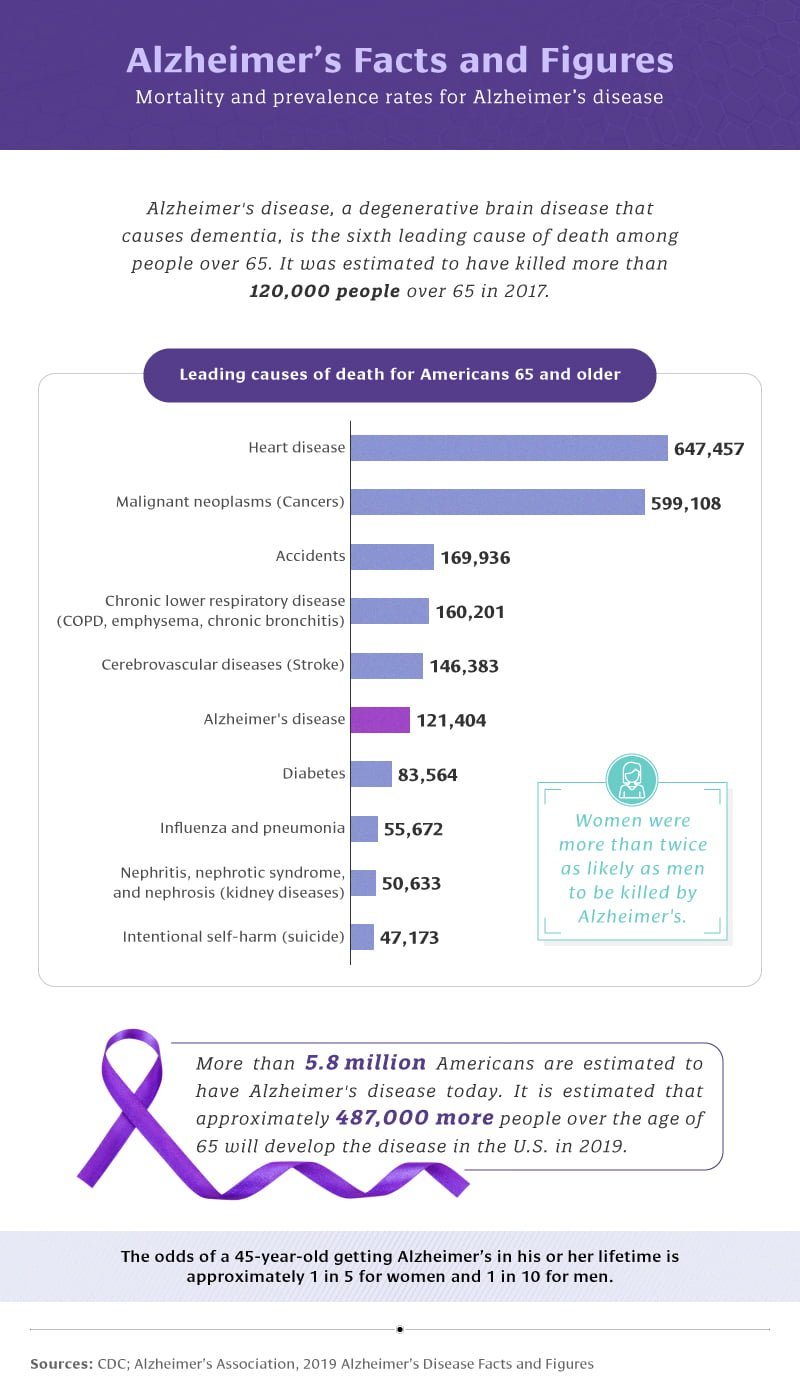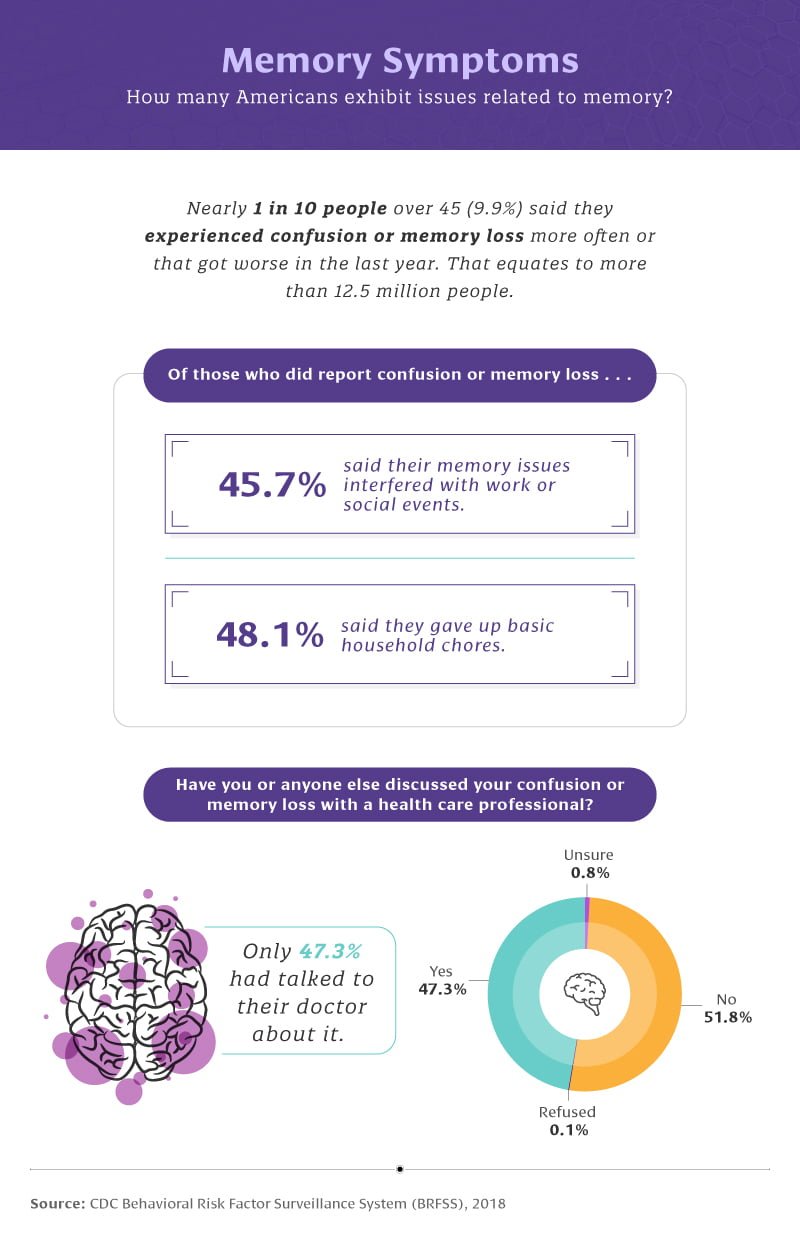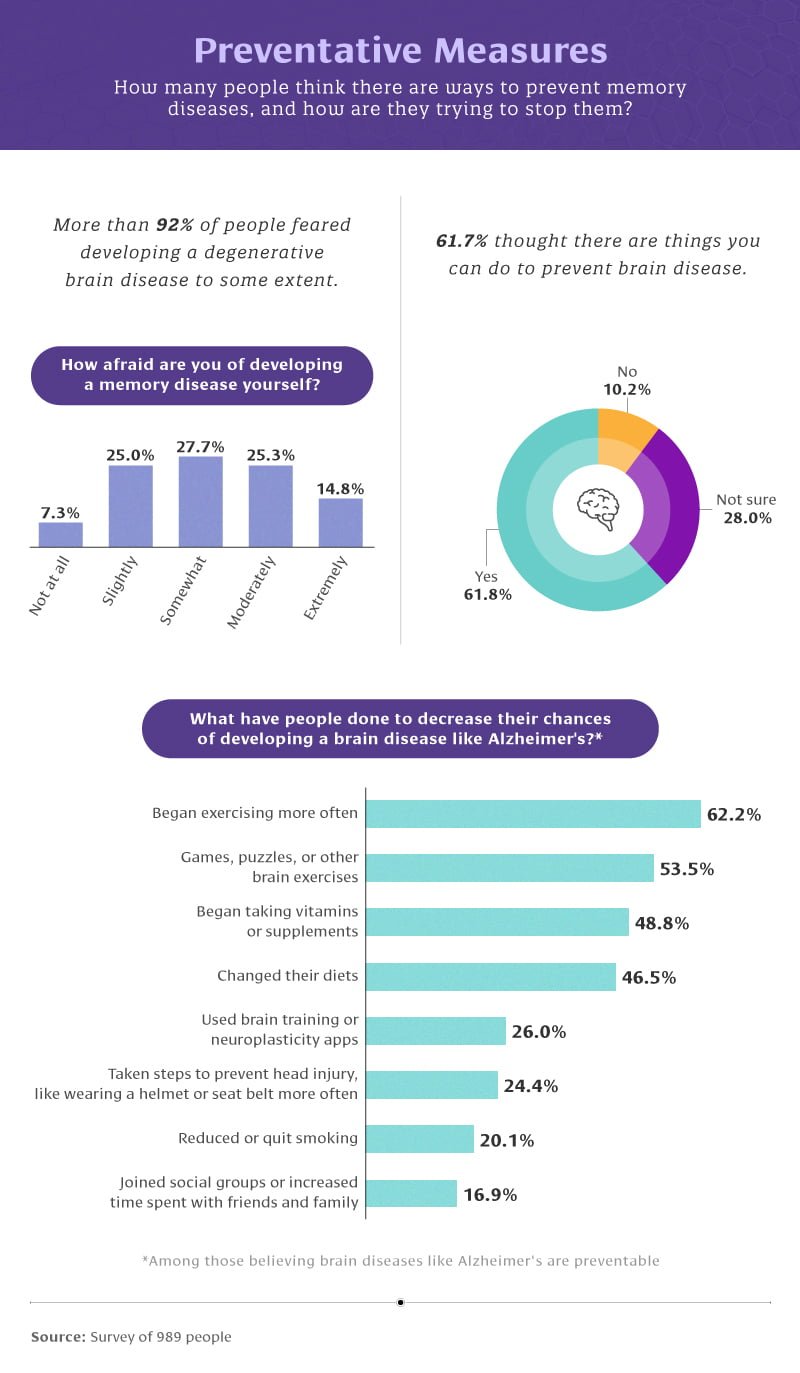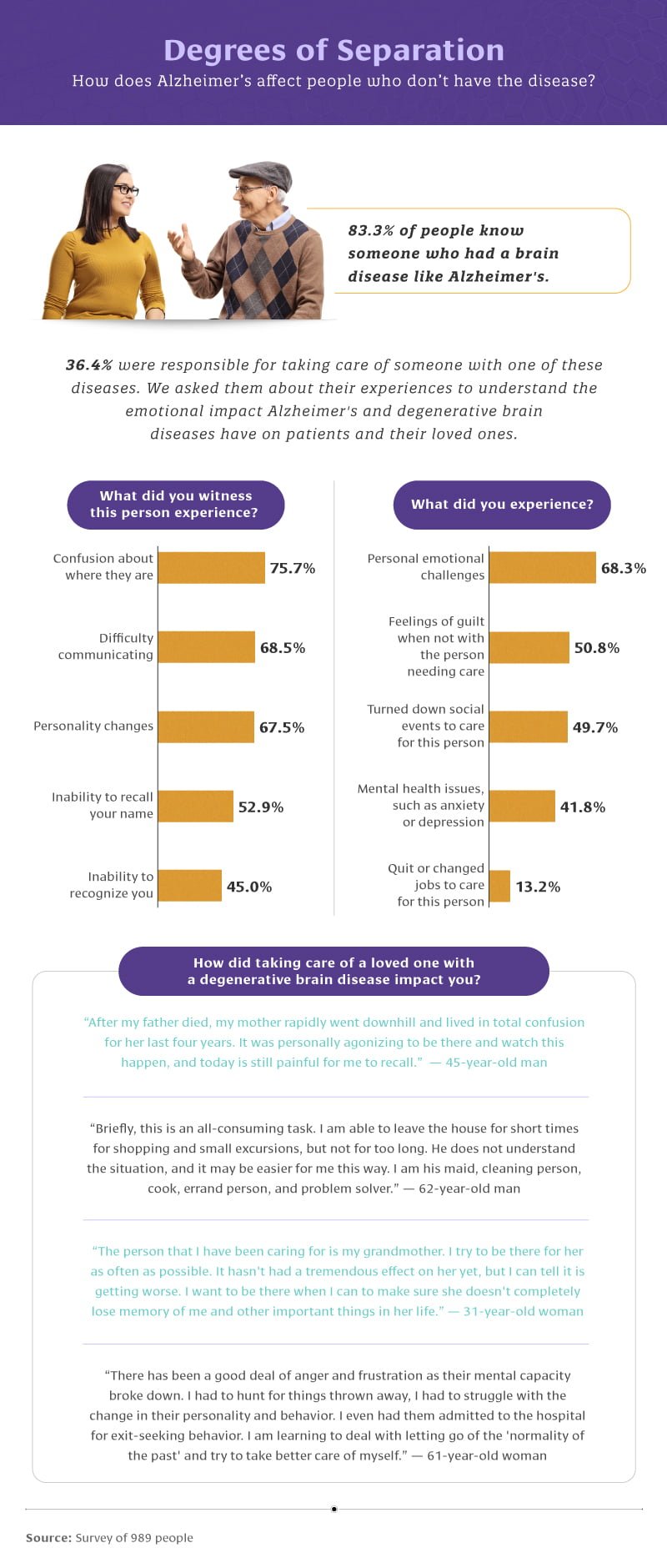Many Americans are faced with the demanding task of caring for an aging family member who may face memory loss often. The commitment that goes into caregiving is already trying and juggling work and personal obligations can get overwhelming.
In a recent study, BodyLogicMD utilized CDC and Alzheimer’s Association data in an effort to learn more about the ways people are adapting to the roles of caregiving. Additionally, BodyLogicMD surveyed nearly 1,000 individuals, most of who knew someone directly affected by the disease.
According to the research, 1 in 10 people over the age of 45 are experiencing memory loss more frequently. As Alzheimer’s continues to be a growing issue, here are some findings to consider.
Currently, over 5.8 million live with this illness, and roughly 487,000 people over the age of 65 are projected to develop the disease in 2019.
Last year, nearly 12 million people experienced confusion or memory loss and of those who did, 45.7% said their memory issues interfered with work and social events. An additional 48.1% said they gave up household chores and only 47.3% have spoken to a doctor about their symptoms.
Being able to pinpoint early onset signs is crucial and could be beneficial to both family members and fellow colleagues in the workforce. 13.2% of caregivers had to quit their jobs to care for a loved one with Alzheimer’s and nearly 50% had to turn down other commitments.
Memory loss and other alignments
Those in the workforce should stay vigilant in spotting signs of dementia in their colleagues. A few symptoms to look out for include confusion of where they are, difficulty communicating and personality changes.
Aside from early detection, there are a few preventative measures people have been implementing, in their daily lives, to reduce their likelihood of developing Alzheimer’s. Over 60% of people believe Alzheimer’s can be prevented and those who believed in methods of prevention, over 50% begin exercising more to decrease their chances of getting a brain disease. Additionally, over 40% changed their diets and began taking supplements.
Even in the most difficult circumstances, there are tangible steps you can take to mitigate the impacts of memory diseases. Staying observant of your loved ones and coworkers and being mindful of the work ethic that goes into caregiving can assist with the current issues of dementia and caregiver burnout.
